10 years not subject to value added tax, domestic fertilizer production indifferent to new investment
The fact that fertilizers are not subject to value-added tax (VAT) has discouraged manufacturing enterprises from investing heavily in innovation over the past 10 years. This has long-term implications for the agricultural sector in the face of the need to reduce emissions, be green, and be sustainable.
Hesitant to invest in factories because they are not subject to VAT
According to Dr. Phung Ha, Chairman of the Vietnam Fertilizer Association, the promulgation of Tax Law 71/2014/QH13 (Tax Law 71) aims to concretize the Government 's policy of encouraging investment in developing domestic fertilizer production, proactively providing fertilizer sources for agricultural production, and gradually reducing imported fertilizers.
However, in reality, Tax Law 71 has not really encouraged investment in domestic fertilizer production even though this is a product related to food security.
 |
The Ha Bac Fertilizer Plant expanded its capacity from 180,000 tons/year to 500,000 tons/year, with a total investment of 568 million USD. Construction began in 2010 and was inaugurated in 2015. |
Statistics show that all the fertilizer factories in operation in the country were built before 2014 – when fertilizer was still subject to VAT at a rate of 5%. These are Phu My Fertilizer Project, Ninh Binh Fertilizer Project, increasing the capacity of Ha Bac Fertilizer Project, DAP No. 1, DAP No. 2, etc. with a total capacity of up to 3.5 million tons/year.
Meanwhile, since January 2015 when Law 71 took effect, the total number of new fertilizer projects invested was only 370,000 tons from Viet Han Fertilizer Factory (350,000 tons/year), Phu My Potassium Fertilizer Factory - SOP (20,000 tons/year).
According to experts, the decline in new investment in the domestic fertilizer industry is largely due to the fact that fertilizer is not a product subject to VAT. Investors clearly see that investing in machinery and equipment to form fixed assets and purchasing raw materials for production but not being able to deduct input VAT leads to a decrease in investment efficiency.
 |
| A delegation from the Ministry of Agriculture and Rural Development visited the fields producing high-quality rice seeds and commercial rice, cultivated according to the emission reduction model in Tra Vinh. |
Thus, fertilizer manufacturing enterprises in Vietnam do not have the opportunity to reduce costs and lower product prices while having to compete with imported fertilizers (there is no input VAT so they are not affected when the output is not subject to VAT).
Although this new investment has not been urgent in the past, with the requirements for sustainable development, emission reduction, and carbon neutrality by 2050 that Vietnam has committed to, if there continues to be no basic investment to improve the current situation, Vietnamese fertilizers will also face difficulties at home.
That is because agricultural products such as rice, vegetables, cashew nuts, and coffee are contributing greatly to the country's export turnover, and fertilizers must be used during the cultivation process. With export markets such as the EU, the US, South Korea, Japan, and China increasingly demanding green and clean products, all elements of the agricultural production process, including fertilizers, must also be green and clean.
 |
| Mr. Phung Ha, Chairman of Vietnam Fertilizer Association |
“The agricultural sector is second only to energy in terms of greenhouse gas emissions, and fertilizers are also a greenhouse gas contributor in both production and agriculture. The agricultural sector’s goal in the “Soil Health and Plant Nutrient Management” Project is to reduce the amount of fertilizer used per unit of cultivation and increase the use of high-efficiency fertilizers (Enhanced Efficiency Fertilizers – EEF). Therefore, Vietnam needs to proactively produce EEF fertilizers, contributing to the implementation of the Net Zero target by 2050 as committed by the Prime Minister at COP 28,” Mr. Phung Ha commented.
Therefore, fertilizer manufacturing enterprises in Vietnam need to make new investments to meet the requirements of reducing emissions, greening production activities, improving factory efficiency, helping fertilizer products have green certification, contributing to increasing the value of Vietnamese agricultural products for export. However, if not subject to VAT, the costs of investing in new equipment and technology for production are not deductible from input VAT, so they will be completely absorbed into the product price, making it difficult to compete with imported fertilizers in the immediate future.
"If this situation continues, domestic fertilizers will find it difficult to meet the urgent greening requirements today," is the sentiment of not only fertilizer manufacturing enterprises but also the agricultural sector.
Research by the Vietnam Private Sector Competitiveness Enhancement Project, conducted by USAID in collaboration with the Ministry of Planning and Investment, also shows that “when output VAT is applied, businesses will be able to deduct input VAT, thereby reducing pressure when investing, repairing machinery and equipment, investing in new technology, and greening production (normally input VAT is about 10%”.
 |
| Mr. Phan Duc Hieu, Standing Member of the Economic Committee of the National Assembly |
Recognizing this reality, Mr. Phan Duc Hieu, Standing Member of the National Assembly's Economic Committee, also said that after 10 years of implementing Tax Law 71, many shortcomings have been revealed, with the agricultural sector suffering both single and double losses, and farmers themselves being the ones to bear the brunt. To resolve these shortcomings, it is necessary to adjust fertilizers to be subject to tax.
“Tax Law 71 has caused disadvantages and inadequacies for domestic fertilizer production enterprises,” Mr. Phung Ha commented, adding that when fertilizers are subject to VAT, domestic fertilizer production will be deducted from input VAT, helping to compete equally with imported fertilizers that have also been deducted from VAT in their countries because they are export goods. This creates an equal business environment, contributing to promoting the sustainability of the domestic fertilizer production industry.
Farmers will also benefit in the long term because domestic fertilizer production enterprises are dominating the market share. If they are subject to VAT, they will be refunded input VAT, which will reduce production costs and fertilizer prices.
Applying 5% VAT: The State, businesses, and farmers benefit in the long term
Based on data from the listed financial statements of 9 fertilizer companies (Ca Mau Fertilizer, Phu My Fertilizer, Ha Bac Fertilizer, Hai Phong DAP, Binh Dien Fertilizer, Lam Thao Super Fertilizer, Van Dien Phosphate Fertilizer, Ninh Binh Phosphate Fertilizer, Southern Fertilizer) with representatives of fertilizer types (urea, DAP, phosphate, NPK) currently accounting for about 60% - 57% of total domestic production and consumption, the Vietnam Private Sector Competitiveness Enhancement Project has published many detailed figures.
That is, input VAT on urea production is 9.3%; NPK is 6.4%; DAP is 8.1% and phosphate is 7.7%.
 |
| Ca Mau Fertilizer Factory with a capacity of 800,000 tons of urea/year, started construction in 2008 and inaugurated in 2012. |
According to Ms. Tran Thi Hong Thuy, Expert of the Project on Enhancing the Competitiveness of the Private Sector in Vietnam, when fertilizers are not subject to VAT, the cost price including input VAT compared to revenue accounts for 78%. But when fertilizers are subject to 5% VAT, the cost price/revenue ratio is only about 71-73% (depending on the type of fertilizer).
Thus, if a 5% value added tax is applied to fertilizers, the selling price of finished urea fertilizers has room to decrease by 2.0%; DAP fertilizers have room to decrease by 1.13%; and phosphate fertilizers have room to decrease by 0.87%. Particularly for NPK fertilizer production, the selling price of finished products can increase by 0.09%.
For businesses importing fertilizers, product prices may increase by 5%, because there is no input tax to deduct.
 |
| Current status of Vietnam fertilizer industry |
However, "the total domestic demand for inorganic fertilizers is about 9.89 million tons, of which domestic production meets 6.5 - 7 million tons, accounting for approximately 70% of the demand, so overall, farmers and the crop growing industry still benefit when the VAT on fertilizers is 5%", Mr. Phung Ha commented.
On the State side, Ms. Thuy said that if the tax rate of 5% value added tax is applied, the budget revenue will increase by 1,541 billion VND, due to the output VAT revenue of fertilizers reaching 6,225 billion VND and input VAT deduction of 4,713 billion VND.
Sharing his views, Mr. Nguyen Tri Ngoc, Vice President and General Secretary of the Vietnam General Association of Agriculture and Rural Development, also said that the policies of all countries consider fertilizers as a priority item because they are related to food security and need to be developed sustainably to create a foundation for society. In China, Malaysia, Indonesia, Thailand or Russia, fertilizers are subject to VAT. China even implements export control measures to ensure supply and stabilize prices for the domestic market. Specifically, from the end of 2023 to now, China has reduced urea fertilizer exports by 90% and phosphate fertilizer exports by nearly 40%.
 |
| If the VAT rate of 5% is applied, the budget revenue will increase by VND1,541 billion, due to the output VAT revenue of fertilizers reaching VND6,225 billion and input VAT deduction of VND4,713 billion. |
Given the fact that agriculture is currently an important pillar for the Vietnamese economy as it contributes greatly to export turnover, it is expected that in 2024, exports could reach 60 billion USD (far exceeding the plan of 55 billion USD and compared to 2022 and 2023 of 54 billion USD), so comprehensive support for the agricultural sector (in which fertilizer accounts for 30-60% of the input value of agricultural materials) is very necessary.
With the policy of developing green, sustainable and ecological agriculture, having practical policies that impact production costs in a green and sustainable direction is something the State needs to facilitate. Therefore, classifying goods from the group not subject to VAT to the group subject to VAT at a tax rate of 5% is very necessary and urgent," Mr. Nguyen Tri Ngoc emphasized.



![[Photo] Ready for the top competitions of Vietnamese table tennis](https://vphoto.vietnam.vn/thumb/1200x675/vietnam/resource/IMAGE/2025/5/18/9c547c497c5a4ade8f98c8e7d44f5a41)

![[Photo] Many young people patiently lined up under the hot sun to receive a special supplement from Nhan Dan Newspaper.](https://vphoto.vietnam.vn/thumb/1200x675/vietnam/resource/IMAGE/2025/5/18/6f19d322f9364f0ebb6fbfe9377842d3)

![[Photo] Party and State leaders attend the special art program "You are Ho Chi Minh"](https://vphoto.vietnam.vn/thumb/1200x675/vietnam/resource/IMAGE/2025/5/18/6895913f94fd4c51aa4564ab14c3f250)



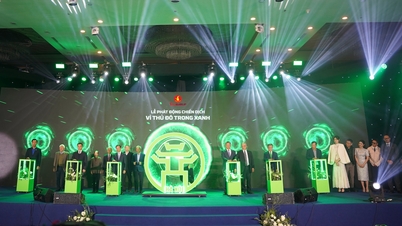


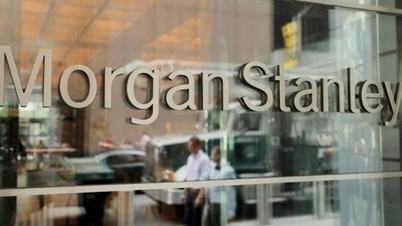


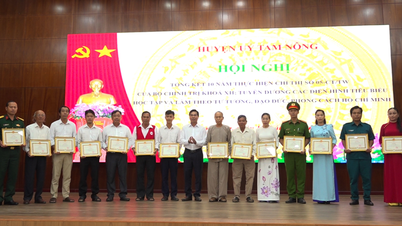
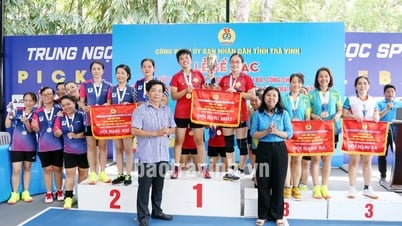
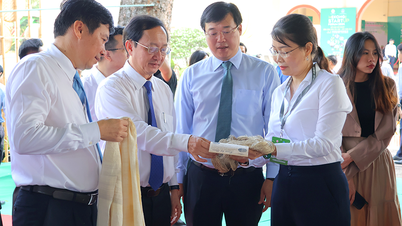
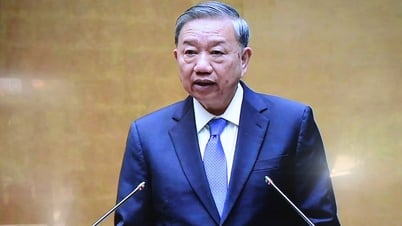
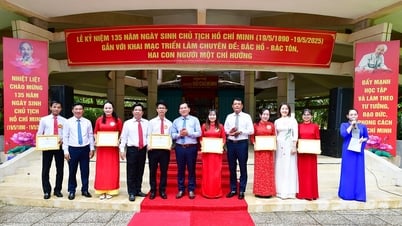
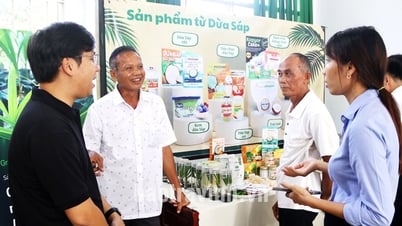







![[Infographic] Numbers about the 2025 High School Graduation Exam in Dong Thap Province](https://vphoto.vietnam.vn/thumb/402x226/vietnam/resource/IMAGE/2025/5/17/c6e481df97c94ff28d740cc2f26ebbdc)
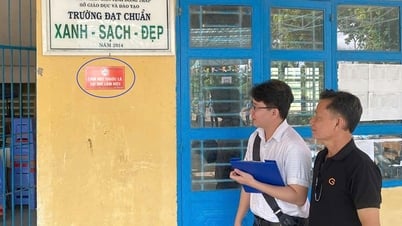
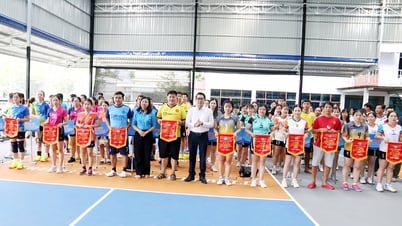


















































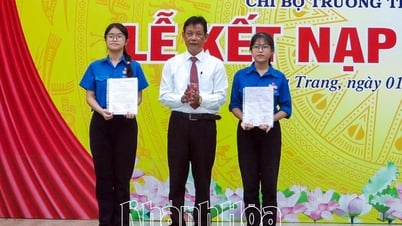
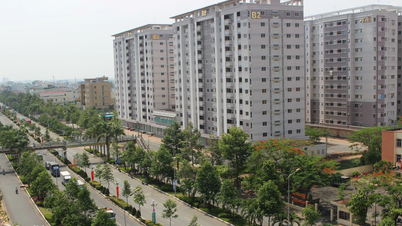

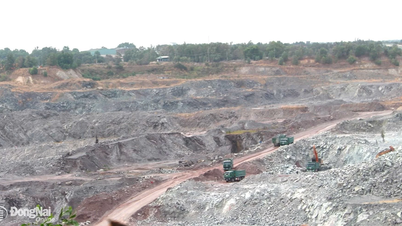
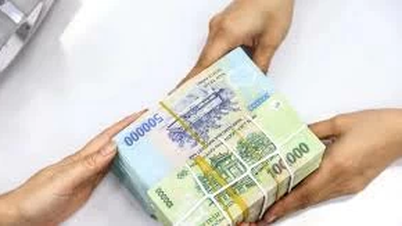









Comment (0)